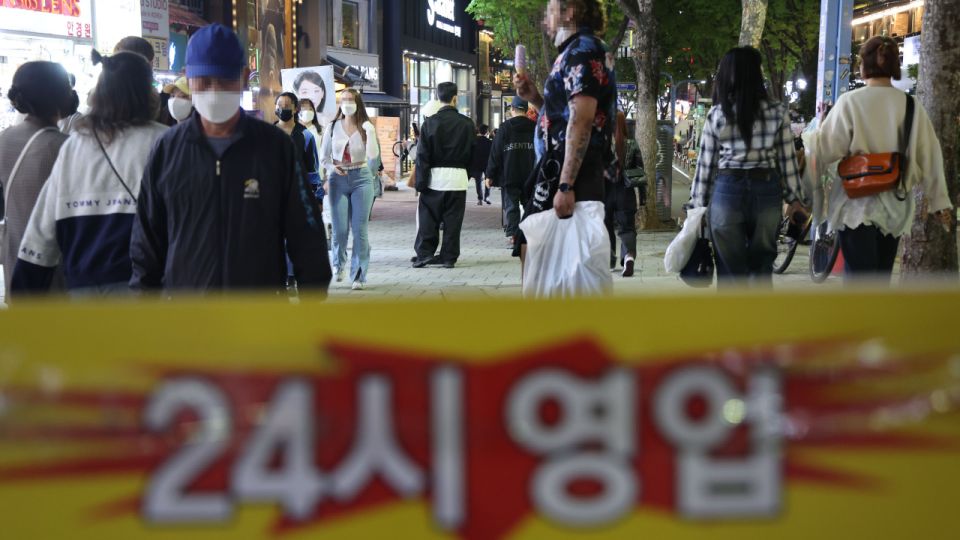April 19, 2022
SEOUL – With the government lifting nearly all social distancing measures, retailers in South Korea are now pinning high hopes on a business recovery after enduring two years of strict pandemic restrictions that limited operating hours, private gatherings and even food tasting at the grocery store.
Supermarkets, which have been hit hard due to pandemic restrictions, are in talks with the government to return to offering in-store samples, which has been banned since last July.
An Emart official and a Homeplus official told The Korea Herald that supermarkets are looking to allow customers to taste food samples starting on April 25.
“Supermarkets have stopped food tasting to prevent the spread of COVID-19. But if we ease the rules, it could be beneficial to the sales of refrigerated products,” the Emart official said.
Department stores are gearing up to start in-person events that customers can enjoy.
A Lotte Department Store official said it will put on small in-store concerts, which have been temporarily suspended to block virus transmission.
“We will also restart catering services and allow eating in VIP lounges from April 25,” the official said, adding that the store has limited the VIPs to drinking water and other beverages inside.
A Shinsegae Department Store official said it’s too soon to tell whether the store will begin spring promotions including small concerts, but added it will wait on government guidelines.
Department stores are also expecting a sales increase in cosmetics when the remaining mask mandates is removed and customers can use cosmetic testers, which often lead to purchase.
Liquor companies that have taken a big hit due to curfews on bars and other entertainment facilities, are looking forward to a surge in sales as well.
“We expect huge sales growth of our beer brand, Terra, in bars and restaurants. With the curfews removed, the company is on track to recover sales to pre-pandemic level — sales in entertainment facilities to 60 percent, and home sales, 40 percent,” a Hite Jinro official said.
Despite some concerns that disposable income could be put into travel rather than buying clothing and accessories, fashion companies are still forecasting high sales in brands that target millennials and generation Z — those born from the 1980s onward.
A Samsung C&T Fashion Group official said that the company’s brands targeting the millennials and gen Z — Ami, Lemaire, Maison Kitsune and Thom Browne — are likely to keep on attracting customer interest due to the lock-in effect, a retail trend depicting consumers becoming attached to a single supplier or a platform.
According to recent data from Korea Chamber of Commerce and Industry, department stores, supermarkets, convenience stores and other offline retailers have reported expectations of a rebound, while online shopping logged a downturn in business projection.


